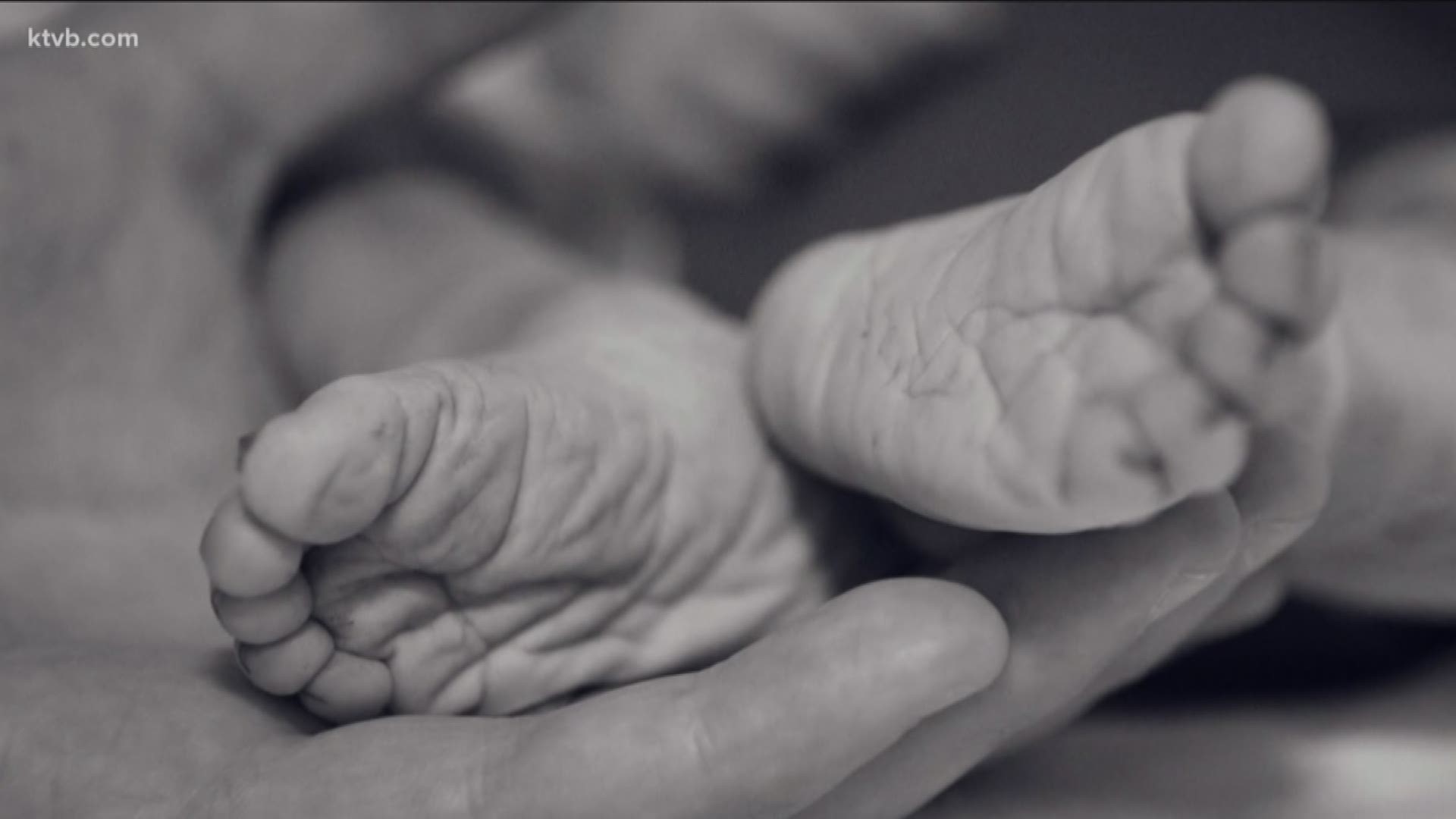Having a baby is supposed to be one of the happiest times for parents and families, but when the pregnancy ends in a loss, it is devastating.
Unfortunately, stillbirths happen more than you might think. The CDC says stillbirth deaths in this country are more common than Sudden Infant Death Syndrome, or SIDS.
Yet, we never talk about stillbirth.
"That's probably the worst phrase that you could possibly imagine hearing in your life, 'I'm sorry, your child doesn't have a heartbeat. They are no longer living,'" Koral Landberg said.
Landberg was just nine days from her due date. Up until then, she had had a normal pregnancy - no complications, no risk factors.
"One morning I woke up and went to, we actually had a baby shower," she said. "We went to the baby shower. And I came home and realized that I hadn't really felt him moving much and I was having some contractions."
She went in for a check-up.
"They're trying to find the heartbeat and it was the longest moments of my life, of waiting because she couldn't find the heartbeat," Landberg said. "You kind of go into shock, realizing, 'What do I do now?' I have to call my family and tell them that we're in the hospital, I'm in labor, but we don't get to have a live baby. Having to go through the delivery with all of the hardships, but none of the rewards. It was awful."
Landberg remembers hoping and praying for a miracle.
"The whole time you're just hoping it was a mistake and that a miracle was going to happen, that he's going to be born and he's going to be fine," she said. "And when that didn't happen and he was born, it was just surreal. You see their face, but they're so cold."
Nationally, up to one in five known pregnancies ends in a miscarriage, which the Centers for Disease Control and Prevention defines as a loss before the 20th week of pregnancy. Stillbirth effects about 1 percent of all pregnancies, defined as a loss after 20 weeks of pregnancy. Roughly 24,000 stillbirth deaths occur each year in the U.S., according to the CDC, which is 10 times more than deaths from SIDS.
Christina Babin counsels pregnancy-loss families and leads support groups at Saint Alphonsus Regional Medical Center.
"Many times people think, 'If we just skip past this, if we don't talk about it then the healing will come faster,' but really that doesn't speed up the grief process," Babin said. "Silence we see is often one of the most frustrating things that families deal with. It's really one of the most painful things they can experience. So support them in this journey."
The grief and guilt were overwhelming for Landberg.
"I didn't want to live anymore," she said. "I was just this shell of a person that I used to be. And I was very bitter about it. I was bitter that I felt like my joy was stolen from me. And you think in your mind, 'What could I have done to make this happen?'"
Babin says friends and family need to allow parents to feel the pain. Don't try to fix it for them, just be present in their pain.
"Give them permission to feel the pain because that's how we heal," she said.
Landberg shares her memories of Ashton because she says it's comforting for grieving parents to have their pregnancy and baby acknowledged.
"It is an issue that isn't discussed ever," she said. "Pregnancy loss and infant loss is something that makes people really uncomfortable. We kind of suffer silently."
Looking back, Landberg is proud of how far she's come in the two years, even though she says the loss of Ashton forever changed her. Through counseling and journaling, she now works to view life's unexpectancies in healthier, less self-destructive ways.
Her message to other families: you don't have to suffer in silence. You are not alone.
"Now I take these experiences and I take Ashton's life and I try to use them to be a blessing to others," Landberg said. "And in that way his memory lives on and that's all I could ever ask for."
She and her husband have started "Ashton's Blessings," a fundraiser in his memory to help Saint Alphonsus purchase comfort items like hand and foot molds and memory boxes for pregnancy-loss families. And each year on his birth date, Landberg visits with families in the newborn intensive care unit and gives them goodie bags of donated pamper items.
Here are some helpful resources:
If you'd like to donate comfort items, visit the Saint Alphonsus Angel Village Facebook page
Pregnancy and infant loss support groups at Saint Alphonsus:
Learn how to support a grieving friend or family member:

